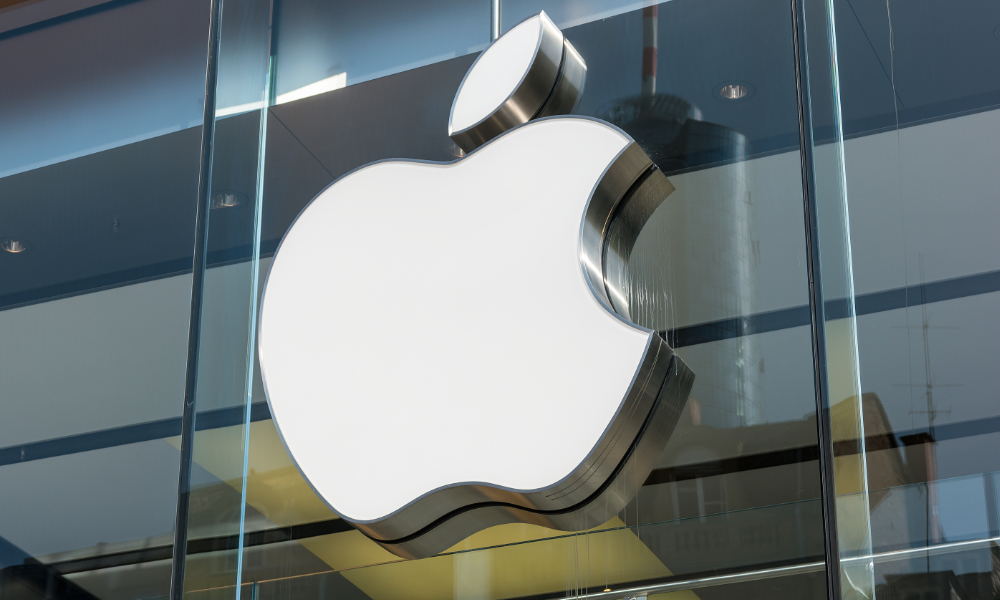Apple Admits It Will Miss Revenue Targets Due to Coronavirus, But Remains ‘Fundamentally Strong’
 Credit: r.classen / Shutterstock
Credit: r.classen / Shutterstock
Toggle Dark Mode
For the second time in as many years, Apple has once again issued a investor update, letting shareholders know that it’s likely to miss its revenue guidance due to problems in China — in this case the coronavirus outbreak.
In a new press release this week, Apple opened by expressing its concern for those affected by the disease, both the infected and those working to help fight the epidemic, while also explaining that the situation means that it’s not going to hit the revenue and sales numbers that it predicted during its last quarterly earnings report at the end of January.
Apple notes that it based its last quarterly guidance on “the best information available at the time” as well as how quickly it expected Chinese staff to return to work after the Chinese New Year holiday, but acknowledges that this has been going much more slowly than anticipated. As we reported last week, only 10% of workers showed up on the first day that Foxconn reopened its factories last week, with many likely either still sick or being hampered by travel restrictions that have been put in place in much of China in order to try and contain the spread of the virus.
Ramping Up Slowly
In the investor update, Apple sheds a bit more light on many of the back-and-forth reports we’ve been hearing for the past few weeks about the impact of the coronavirus on Apple’s supply chain, where there has been some confusion over exactly which Apple products could be impacted.
The health and well-being of every person who helps make these products possible is our paramount priority, and we are working in close consultation with our suppliers and public health experts as this ramp continues.
Apple comes right out and admits that “worldwide iPhone supply will be temporarily constrained” as a result of the health problems, noting that despite its manufacturing partners being located outside of the affected Hubei province, they are all “ramping up more slowly than anticipated,” and Apple wants to make sure it doesn’t rush things and put worker safety in jeopardy.
Weak Demand in China
Although many of the reports on the impact of the coronavirus have focused on Apple’s supply chain and its ability to manufacture enough products to meet worldwide demand, Apple also points out that the outbreak has affected demand for its products within China.
All of Apple’s stores and many of the stores of its retail partners were shut down entirely for over a week, and those few that have been reopened are operating at reduced hours and with much lower customer traffic as a result of how many people are simply staying home due to the contagion.
Apple says it’s “gradually reopening” its retail stores as safely as it can, and its corporate offices and contact centres also remain open, as does its online store, but the lack of retail sales is still going to impact sales in one of Apple’s largest worldwide markets.
Long-Term Effects
Not surprisingly, Apple doesn’t say much about the longer-term impact, since of course it’s only looking forward to Q2 2020 right now, which ends in March, with the quarterly earnings report expected in April. However, we’ve already heard conflicting reports that the coronavirus outbreak may impact Apple’s iPhone 12 supply due to travel restrictions that are preventing Apple engineers from being able to travel to China.
In fact, Apple analyst John Gruber raises an interesting point at Daring Fireball, noting that Apple has at least two dozen employees travelling to China every single day, based on the fact that Apple books about 50 business-class seats to China with United Airlines every day.
Those Apple employees who travel to China aren’t doing so for kicks. They have work to do there. Suppliers to meet, parts and prototypes and assembly lines to inspect.
John Gruber, Daring Fireball
Although it’s not something that Apple is talking about, since it has no obligation to inform investors of it yet, the impact of Apple’s engineers being unable to travel to China could have a much longer-term effect on Apple’s product development cycle, not just for the iPhone 12, but possibly well into the company’s product roadmap for the next couple of years.
Still, Apple wants to reassure both its investors and its employees that the company is “fundamentally strong” and fully expects that it will weather this current storm.
Apple is fundamentally strong, and this disruption to our business is only temporary.
Apple CEO Tim Cook reiterated this same statement in a memo sent to Apple’s employees that was obtained by Bloomberg, noting that Apple has “more than doubled” its donation to the global health response and reassuring them that the company’s first priority “now and always” is the health and safety of not only its employees, but also its “supply chain partners, customers, and the communities in which we operate.”






